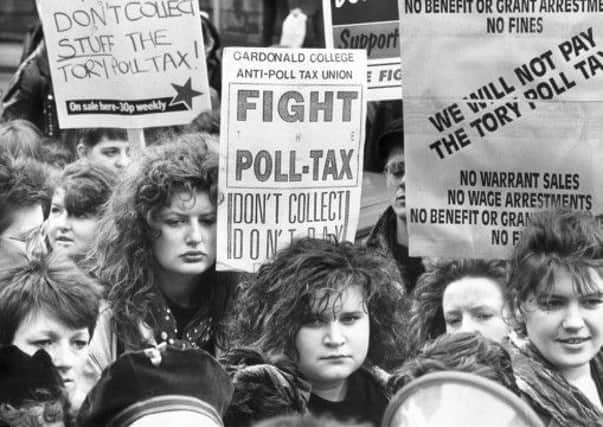David Maddox: Not poll tax but it may be damaging


While the poll tax infuriated voters across the political divides, led to mass non-payments, riots and the fall of the Iron Lady from government, David Cameron’s bedroom tax has failed to anger many people beyond mostly Labour voters directly affected by it.
But in one important area the two policies have proven very much alike, and that is on their impact in Scotland.
Advertisement
Hide AdAdvertisement
Hide AdOn a basic level the spare room subsidy, as the UK government calls it, or bedroom tax, as everybody else calls it, affects people living in social housing with extra bedrooms the length and breadth of the UK, but politically the only real danger for the coalition lies north of the Border.
The main reason for this is that the independence referendum has allowed the issue to become a totem of how Westminster unfairness is failing the needy in Scotland, and a way of showing how independence could make a difference. The other reason that it has been more damaging north of the Border is that the only Westminster committee to hold a parliamentary inquiry into the tax is the Scottish Affairs Committee, which published a damning report into it this week.
This means that much of the focus of the arguments against the policy have been through a Scottish framework, with Scottish bodies such as the Convention of Scottish Local Authorities having a far greater platform to make the case against it. Ironically, it is an example of the Westminster parliament working for Scotland in terms of scrutiny.
The poll tax in the rest of the UK is largely a matter of history now but in Scotland it has obtained a mythical status that has kept the Tories out of seats in Scotland to this day. The same danger could be there in Scotland with the bedroom tax, because it has added to the legend of the nasty Tories.
It seems unlikely that the bedroom tax in itself will be decisive in the referendum, but what it has done is given the Yes campaign a welfare hook to fight on in a campaign where they have otherwise struggled to make traction on welfare issues. It is noticeable that the one off the record concession from the coalition leaked to Scotland on Sunday earlier this year was that housing benefit could be devolved to Scotland.
Beyond the referendum the issue will come back in Scotland to haunt the coalition parties. The Tories already are down to minimal seats but it is their partners the Lib Dems with 11 seats who are in danger of being found guilty by association.
This may explain why most of the UK money to help people out in exceptional circumstances went to Scotland, and why it was Lib Dem Scottish Secretary Alistair Carmichael who alone appears to be suggesting it could be scrapped.